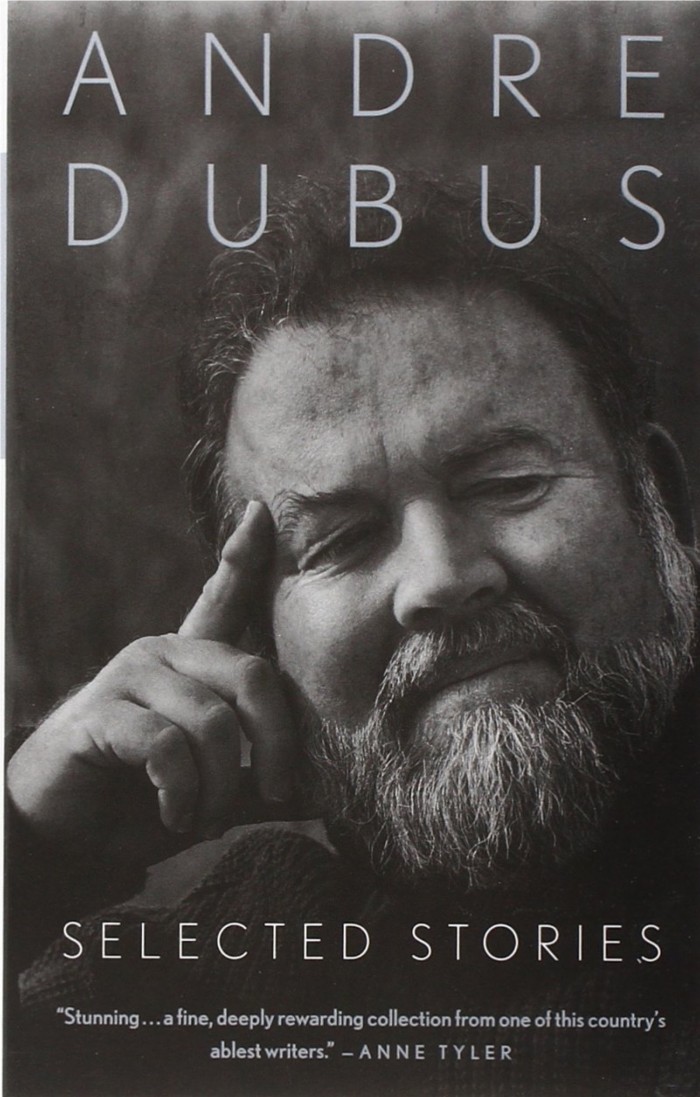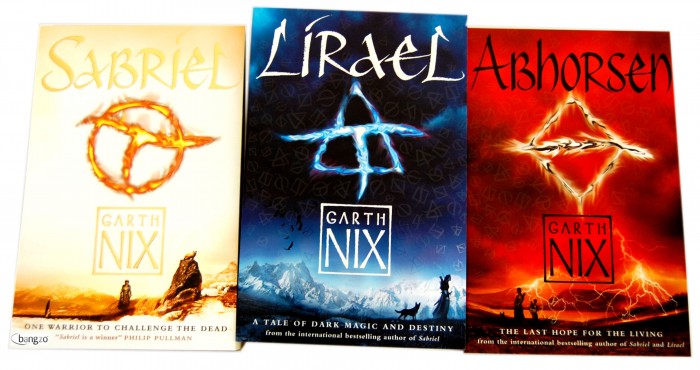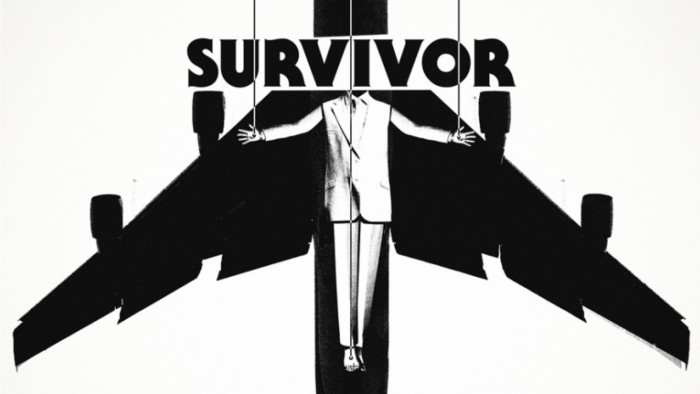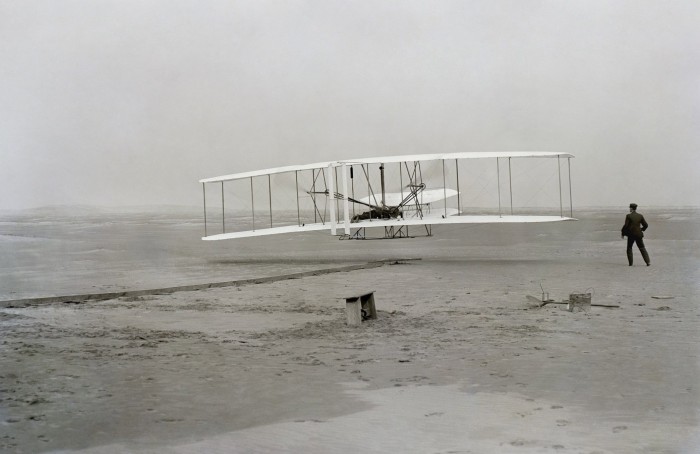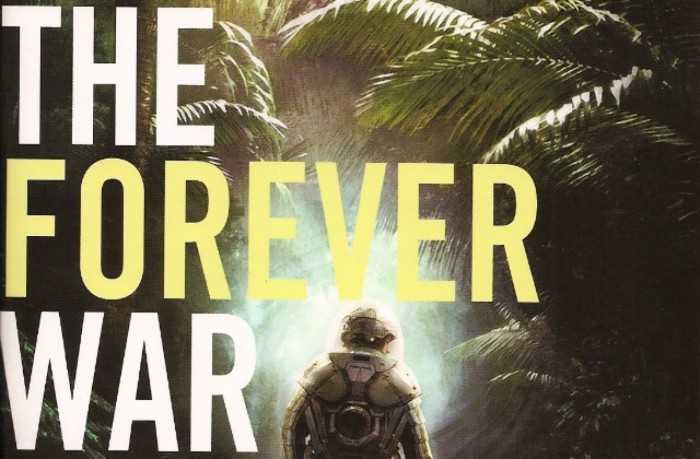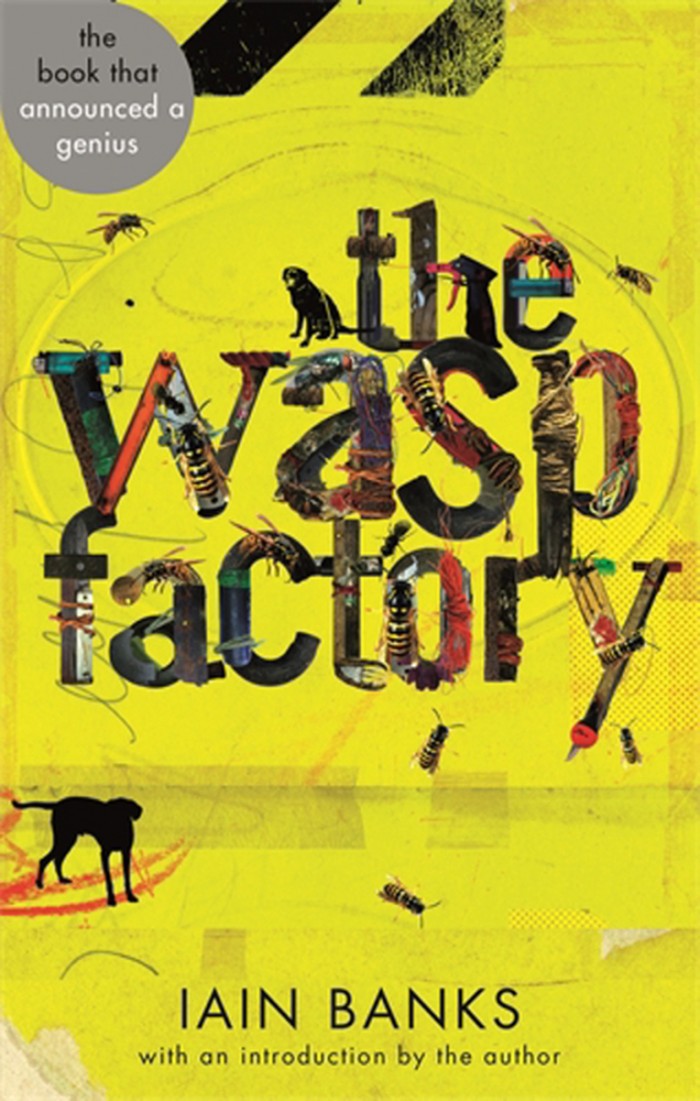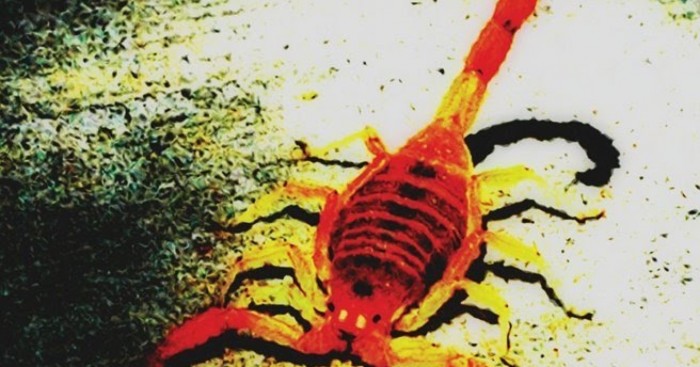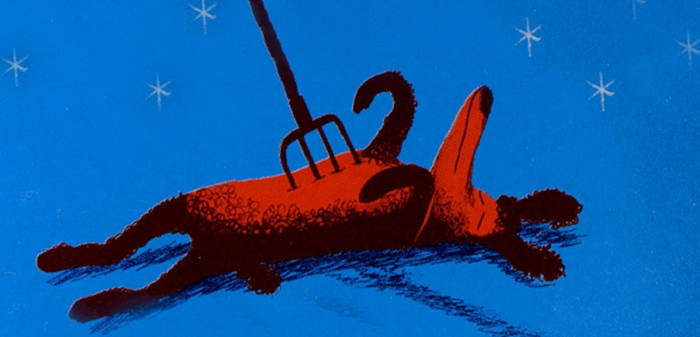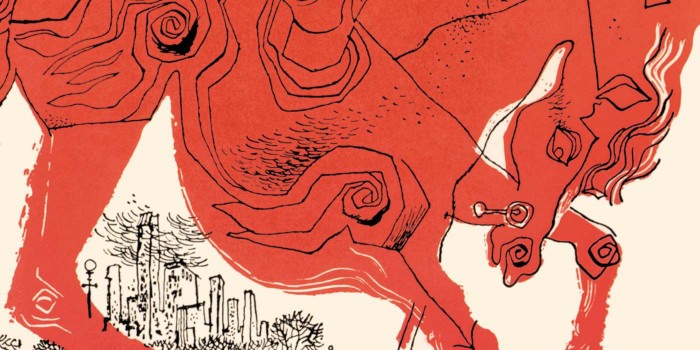Great Books That Hollywood Needs To Adapt Into Movies
Every week in /Answers, we attempt to respond to a new pop culture-related question. This week's edition asks "Which book do you most want to see adapted into a movie?"
As always, we have submissions from the /Film writing crew and podcast team. If there's a book you'd like to see to adapted (especially if you know who should star in it and direct it), send your thoughts to slashfilmpitches@gmail.com for a chance to be featured on the site. Find out our favorite books that need movie adaptations below!
Chris Stipp: “Anna” by Andre Dubus
I've never been one to gravitate towards the fantastical or otherworldly.
My friends growing up in adolescence, well-intentioned as they were, tried to get me to read Douglas Adams, Ray Bradbury, and attempted to cajole me into picking up any number of science fiction series which were, by all of their accounts, well worth my time. I just wasn't interested. I didn't want to read novels, to be honest. I stayed this way until the very first semester of college when I wanted to make English my sole focus of study. I read everything. Novels, plays, poems... You name it, I was sitting at home on a Saturday night reading it.
What made the most impact, though, was short form American fiction. Next to Shakespeare, there was no other genre that spoke to me more than the works of John Updike, John Cheever, Charles Baxter, Ron Carlson, and, the heavyweight to rule over them all, Andre Dubus. Dubus should be known to many in cinematic circles for his short story that was the basis for In the Bedroom, called "Killings." The style and manner in which he was able to juxtapose hobbled individuals at true crossroads with elegant, economically chosen prose to helped color those moments and still gives me pause.
"Anna" is a story that could easily be rendered before our eyes in a visually understandable medium, much the same way that the photographer Gregory Crewdson captures the gnarled existence of suburban living as tableaus that can sometimes be unsettling as they are honestly moving. Take, for example, this sample from the story, which happens after our protagonist, a 21 year-old woman named Anna, helps her boyfriend rob a drugstore on a cold day. They go to a bar shortly afterward to drink and, after a while, she leaves the bar and even though enriched by a paltry sum of money, this is how she reacts to the weather:
"...the sudden cold emptied her lungs, then she deeply drew in the air tasting of night and snow. 'Wow.' She lifted her face to the light snow and breathed again. Had she smoked a Camel? Yes. From Lou. Jesus. Snow melted on her cheeks. She began to shiver. She crossed the sidewalk, touched the frosted parking meter. One of her brothers did that to her when she was little. Which one? Frank. Told her to lick the bottom of the ice tray. In the cold she stood happy and clear-headed until she wanted to drink, and she went smiling into the warmth and smoke."
The ending to this story is sad, not pathetic, and it gets to a certain hollowness that resonates, should we ever be so low as to think that stealing would be a way of life for anyone possessing a conscience. It's this kind of writing that I wish could be reflected on film more often but, like Dubus, sometimes it's just enough that our mind's eye helps us see it all unfold before us.
Hoai-Tran Bui: Sabriel by Garth Nix
Necromancy, zombies, high fantasy and an intrepid female hero? Sabriel is the gothic fantasy adventure film we need at a time that the the young-adult movie genre is at standstill and the vampire trend is all but dead in the ground.
Written by Garth Nix, the story is the first in a trilogy set in a world divided into two lands separated by a mystical wall: the modern, 1900s-like Ancelstierre, and the magical, ravaged Old Kingdom. The titular Sabriel is a student in Ancelstierre, brought there to keep her safe from the Old Kingdom by her necromancer father. But his disappearance into Death (in this story, a nine-level pathway into the afterlife through which runs an icy river), triggers a series of events that forces Sabriel to venture into the Old Kingdom to find him and claim her inheritance as Abhorsen — a necromancer who puts the dead to rest.
It sounds like a bit of a convoluted set-up, but Sabriel is a heart-pounding, eerie and gory adventure with a dash of romance which explores a brilliantly constructed fantasy world. With many of Neil Gaiman's gothic fantasies being adapted for the big and small screen (and Sabriel's many similarities to Stardust are not lost on the book), Sabriel could be the next big thing. Plus: zombies.
Peter Sciretta: Survivor by Chuck Palahniuk
I discovered Chuck Palahniuk through David Fincher's seminal film adaptation of Fight Club and devoured all of his books published previously and since. And while Fight Club remains my favorite of the bunch, Survivor is my close second. The book was published two years before the events of September 11, 2001 and the story follows a man who has hijacked a Boeing 747-400, and the story is told under the construct of him relaying his life story to the black box leading up his plans to crash the airplane.
Fox was developing a film adaptation written by Jake Paltrow, but one day in September changed everything. I Am Legend/Hunger Games director Francis Lawrence has tried unsuccessfully for years to bring the story the big screen.
The book tells the story of Tender Branson, a member of a death cult called the Creedish Church. Through flashbacks, we are told the story of how he got to this place. On center stage is Palahniuk's signature humor and prose, this time taking on pop culture, fame, religion, and commercialism. The chapters and pages are numbered backwards, beginning with Chapter 47 on page 289 and ending with page 1 of Chapter 1.
I would love to see this story on the big screen someday, although I must admit that most of Palahniuk's work probably works better on the page. I used to imagine a movie directed by David Fincher, but that might be a bit too obvious and on the nose. These days I'd like to see this work adapted by someone by the likes of Jason Reitman or Rian Johnson. I feel like their sensibilities would fit the tone and humor of this book.
David Chen: To Conquer the Air: The Wright Brothers and the Great Race For Flight by James Tobin
It's remarkable to consider that, as a species, we've only been flying in heavier-then-air vehicles for about a century. But as normal as flying feels to us today, there was a time not too long ago when man's ability to quickly traverse the skies seemed far from certain. James Tobin's book, To Conquer the Air, is one of the definitive chronicles of the Wright Brothers quest to fly, despite seemingly insuperable odds. In addition to capturing the fascinating dynamic between the two brothers, there's a whole colorful cast of characters that the brothers were up against, some of whom would make great fodder for a film version.
Jacob Hall: The Forever War by Joe Haldeman
So much of the best science fiction uses impossible scenarios to illuminate more immediate and personal truths. Joe Haldeman's The Forever War may be one of the most terrifying and clear-headed novels ever written about the Vietnam War, despite being set in the distant future.
Haldeman, a veteran of the conflict himself, writes of an intergalactic war where human soldiers venture deep into space to wage war with an alien race called the Taurans. However, the military technology that allows their ships to travel lightyears in seconds has a relativistic side effect – a months-long voyage into enemy territory sees years pass on Earth. When characters return home after a two-year tour of duty, 27 years have passed back home. Society has left them behind. They don't fit in. They cannot adjust to their new reality. So their only option is to return to war, forever unable to truly go home.
As a metaphor for the isolation and and PTSD felt by returning war veterans, it's chilling. As hard science fiction, it's fascinating and very clever. In one especially horrifying scene, human soldiers arrive in battle, only to realize that their relative brief journey to the fight was years for the enemy and they have upgraded their weaponry accordingly. It's a slaughter.
A film adaptation of The Forever War has been in the works since 2008. The most recent update came in 2015, when it was revealed that Channing Tatum was attached to star as William Mandella, a student recruited into the war in its earliest years. As much as I like Tatum, that casting is all wrong. Mandella needs to be young and fresh-faced, preferably played by an unknown actor. To replicate the Vietnam metaphor, we need to watch someone truly innocent (someone who doesn't look like a movie star) transform over the course of conflict they cannot escape. And while Ridley Scott was at one point attached to direct, this material would be better served in the hands of a filmmaker who would double down the horror of war, not the military tech. This would be the perfect first studio gig for someone like Green Room and Blue Ruin director Jeremy Saulnier, a filmmaker capable of showcasing the traumatizing realties of violence.
Jack Giroux: "The Wasp Factory" by Iain Banks
Little about Iain Banks' debut novel, The Wasp Factory, readily lends itself to a film adaptation. The first-person narrative follows Frank Cauldhame, a teenager who killed three people – family members – before reaching the age of 10. How Banks depicts his horrific and strange murders and his thought process is unshakeable.
The book contains these grotesque, vivid images that could make for one emotionally unsettling horror movie/drama. The Wasp Factory's story doesn't scream and shout "Film!", which is why I'm curious how someone would attempt to adapt it. It's a simple story at its core, but the pitch-black hole Banks leads readers down touches on some complex emotions and wouldn't translate to a conventional and digestible film narrative. With the right vision, though, an adaptation of The Wasp Factory could be a challenging, experimental, and unnerving experience not for the faint of heart.
Ben Pearson: Wraiths of the Broken Land by S. Craig Zahler
S. Craig Zahler's brutal western Bone Tomahawk was my favorite movie of 2015, and I loved that film's script so much that I decided to seek out some of his novels as I waited for his second directorial effort. First on my list was 2013's Wraiths of the Broken Land, which ended up being one of the most visceral, disturbing things I've read in years.
Set in 1902, the story is about two sisters forced into prostitution at a high society gentlemen's club in Mexico. Zahler sets the stage in vivid, often revolting detail, and the story cross-cuts between the women's struggles and a rescue effort led by their brothers and father, who recruit a bilingual cowboy to infiltrate the club and join them on a daring raid. This isn't the most pleasant book you'll ever read, but it's a magnetic, character-driven tale with explosive action, and a loathsome villain you'll love to hate. I won't spoil what happens, but the climactic action set piece is begging to be seen on the big screen.
Last year, it was announced that the book is already being developed into a movie. But there's bad news and good news about that. The bad news: Zahler, who wrote the novel and did such a spectacular job with the similarly brutal Bone Tomahawk, doesn't seem to be involved at all in making this movie. The good news: the film version will reuniting the team behind The Martian, with Drew Goddard adapting the script and Ridley Scott sitting in the director's chair.
All in all, that sounds like a pretty good trade to me. If we have to lose the pure vision of a talented up-and-comer, at least we know we'll be in good hands with a couple veterans who clearly know a thing or two about making excellent movies. Now we just have to wait until Scott carves out enough time to make the damn thing, because if he has it his way, it sounds like he could be buried in Alien movies for the next decade.
Ethan Anderton: The Curious Incident of the Dog in the Night-Time by Mark Haddon
Published back in 2003, Mark Haddon's detective novel is a quick read at just 226 pages, but this isn't your average mystery. The Curious Incident of the Dog in the Night-Time follows 15-year old Christopher John Francis Boone as he sets out to discover who killed his neighbor's poodle, Wellington. The only problem is that Christopher was found at the scene of the crime where the dog was impaled on a garden rake, making him look like the culprit. No one has too difficult of a time believing that he's responsible because Christopher is autistic, and his perceived emotional and mental state leaves many to believe that he's capable of such an atrocity without really knowing what he was doing.
Because the story unfolds through the eyes of Christopher, we experience the sometimes overwhelming world as he does. Imagine a detective novel where the investigator can't pick up on social cues or human emotions, doesn't understand metaphors or similes, picks up on certain intricate details, but doesn't easily take notice of other things that might draw the attention of someone who isn't on the spectrum. Reading the book can be simultaneously taxing and fascinating, which is just a testament as to how well Mark Haddon puts us in the mind of his main character.
The film rights to The Curious Incident of the Dog in the Night-Time were optioned by Brad Grey and Brad Pitt for Warner Bros. Pictures, and Harry Potter franchise writer Steve Kloves was attached to write the film adaptation in 2011. However, there hasn't been any progress on that front in awhile. The adaptation of the book Extremely Loud and Incredibly Close, which also has a bit of a mystery that centers around a child with autism, arrived in 2011, and it might be the reason why the project hasn't moved forward. However, it's probably for the best since the book became a successful stage play a year later, and it could make a film adaptation be an even higher profile project than it was before.
What Is Your Favorite Book That Should Be A Movie?
What do you think of our picks? What is your favorite book that should be adapted for there big screen? Talk about it in the comments below or email your personal answer (a paragraph or more) to slashfilmpitches@gmail.com with the subject title "Favorite Book To Movie." Our favorite responses will be featured on the site in a future post!
And in case you missed any past editions of /Answers, here is a look back:

